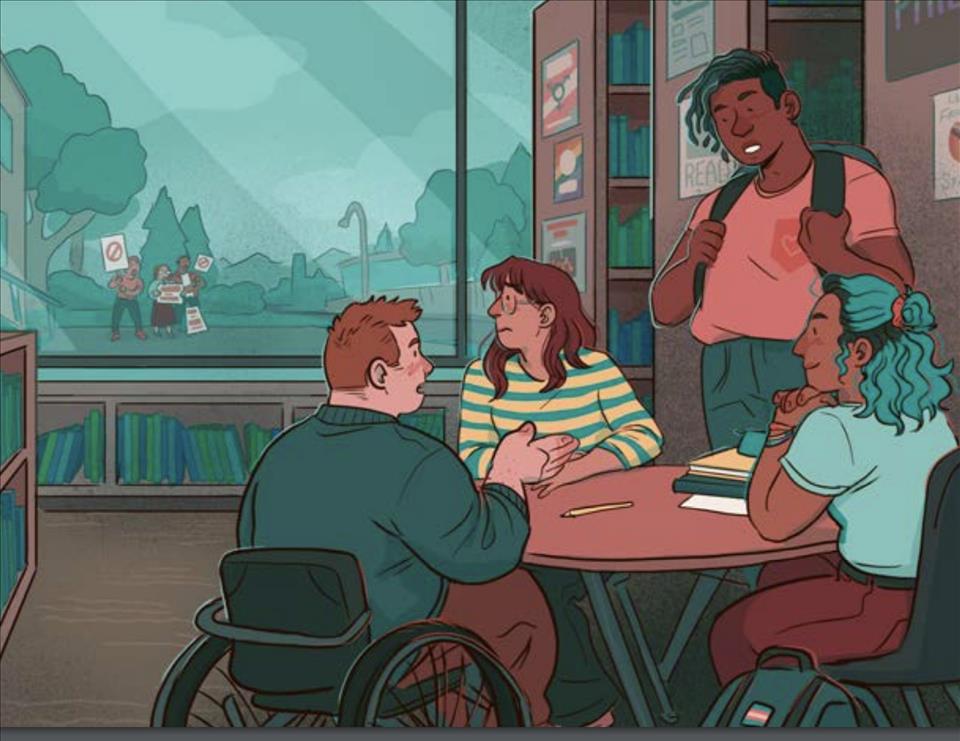
B.C. Election: Debate Over The Rights Of Gender-Diverse Youth Continues As Their School Safety Declines
In the run-up to the upcoming B.C. election , discussions around a sexual minority framework for schools and the SOGI 123 initiative are prominent.
What is SOGI 123?Introduced into B.C.'s public schools in 2016, SOGI 123 aims to make schools safer and more inclusive for students of all gender identities and sexual orientations. The initiative provides resources to help educators combat and address discrimination and bullying, and foster supportive and inclusive environments for 2SLGBTQ+ students.
The push for SOGI 123 was informed by a 2014 study which included data from the McCreary Centre Society's 2013 BC Adolescent Health Survey . That study showed that schools with an established Gay Straight Alliance or Gender Sexuality Alliance, along with anti-homophobic policies, lowered the odds of sexual minority students reporting discrimination, mental health issues and suicide attempts compared to students in schools without such initiatives. Notably, heterosexual students also benefited from these inclusive settings.
In 2018, a subsequent BC Adolescent Health Survey of more than 38,000 youth aged 12-19 - including almost 1,000 children who identified as gender diverse - revealed that gender-diverse youth, including those identifying as transgender or non-binary, faced high rates of bullying, both in-person and online . The findings highlighted the importance of strong school and family relationships, which were linked to better mental health and lower rates of substance use and suicidal thoughts.
Despite hopes that SOGI 123 would bridge the health and well-being disparity gap for gender-diverse and cisgender youth, recent events may be undermining those efforts. Over the past two years, there has been a notable rise in vocal opposition to the rights of trans and non-binary students across the country , with schools becoming a backdrop for protests and counter-protests.
In response to these challenges, researchers at the University of British Columbia teamed up again with McCreary Centre Society to analyze the BC Adolescent Health Survey data from 2023 to see what, if anything, has changed for trans, non-binary, and questioning young people in B.C. since 2018.
Protestors gather at the legislature during a rally for trans rights in Edmonton, Feb. 4, 2024 after Alberta Premier Danielle Smith announced the most restrictive policy for trans and non-binary youth in Canada, that critics say will increase the risk of abuse and self-harm. THE CANADIAN PRESS/Amber Bracken Key findings from the 2024 report
Improved family support: Some positive findings from the 2024 report include improved family support for gender-diverse youth with a noted reduction over time in these young people running away or getting kicked out of home.
Decreased feelings of safety: Results for students' experiences at school were less positive, with decreases in feeling safe at school for both gender-diverse and cisgender youth. Gender-diverse young people were the least likely to report feeling safe in different parts of their school, and particularly in less supervised locations such as changing rooms and washrooms.
Increased reports of bullying: The majority of gender-diverse youth had experienced at least one type of in-person or online bullying in the past year, and rates of experiencing online bullying were at least twice those of cisgender boys.
Rising discrimination: Compared to five years earlier, there was an increase in gender-diverse youth reporting they had experienced discrimination, and the majority had experienced at least one form of discrimination in the past year. The most common location where discrimination occurred was at school: 32 per cent of trans girls and 57 per cent of trans boys reported they had experienced discrimination at school, compared to 29 per cent of cisgender girls and 20 per cent of cisgender boys.
School connectedness is crucial for mental well-being: Similar to past studies, strong school connections remained a strong protective factor for health and well-being, linked to reduced suicidal thoughts and suicide attempts. For example, trans boys with the highest school connectedness were 99 per cent less likely to report seriously considering suicide in the past year compared to those with lower school connections. Likewise, trans girls with strong connections were 8.7 times more likely to report good or excellent mental health compared to other trans girls with low school connections.
B.C. election issueAs the debate about SOGI 123 continues during this election cycle, the recent data from more than 76,000 Grade 7-12 students serves as a crucial and timely reminder.
It highlights the importance of considering the experiences and perspectives of B.C.'s youth in discussions about how to create safe and inclusive school environments for all.

Legal Disclaimer:
MENAFN provides the
information “as is” without warranty of any kind. We do not accept
any responsibility or liability for the accuracy, content, images,
videos, licenses, completeness, legality, or reliability of the information
contained in this article. If you have any complaints or copyright
issues related to this article, kindly contact the provider above.


















Comments
No comment